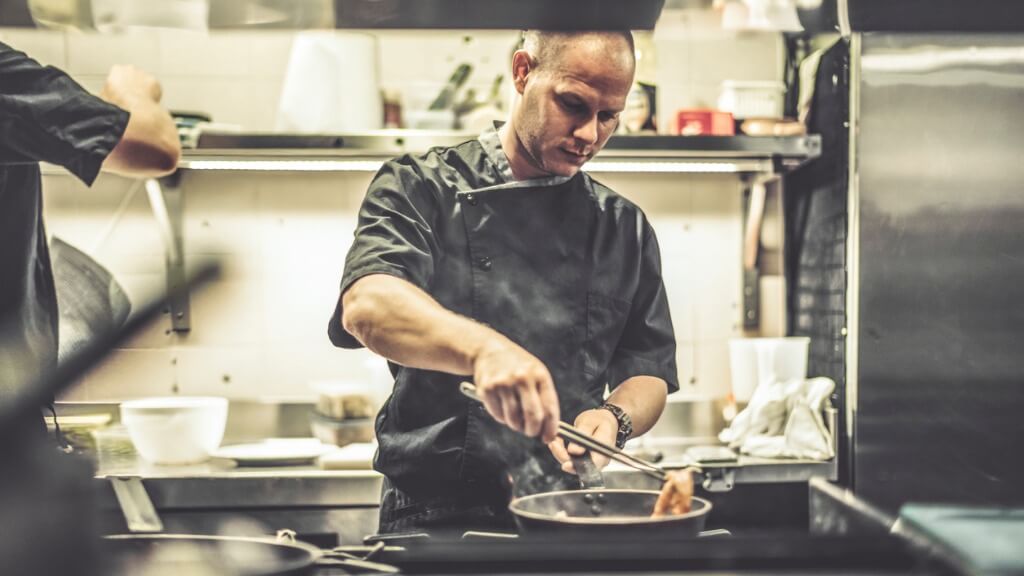
As we stand on the precipice of the fourth industrial revolution, the integration of artificial intelligence (AI) into our daily lives is becoming increasingly prevalent. From personalised marketing to autonomous vehicles, AI's pervasive influence is undeniable. One industry where its potential is particularly tantalising is the kitchen industry. In the United Kingdom, this sector is ripe for a technological transformation that could revolutionise the way we cook, eat, and manage our homes.
AI is already beginning to make its mark in the kitchen industry. Consider the Samsung Bot Chef, a "Co-bot", or collaborative robot, which made its debut at the Kitchen and Bath Industry Show back in 2019. This advanced kitchen companion can perform a wide range of tasks, from brewing coffee and chopping onions to following complex personalised recipes and cleaning up afterwards. Its sophisticated array of sensors ensures safe operation and interaction with human "co-chefs". It can identify an approaching person and adjust its operations accordingly, slow down or stop when necessary, and even ask for help when it can't find something.
However, the world of AI kitchen helpers is not limited to top-end robotic chefs. There's also the Kroger Chefbot, an AI Twitter tool that can suggest a plethora of recipes based on a picture or list of up to three ingredients. This clever bot can identify nearly 2,000 ingredients and has a bank of almost 20,000 recipes at its disposal. By generating recipe ideas from ingredients we already have, Chefbot can help us significantly reduce domestic food waste and cut down our cost of living.
We also have AI-enabled smart fridges from companies like LG and Samsung, which can check the contents of the fridge and suggest meal ideas or remind us when to restock certain items. The new generation of the Samsung Family Hub fridge uses Whisk, a smart food platform, to provide personalised recommendations based on factors like local weather, what foods are currently in season, and user inputted preferences such as dietary requirements and favourite recipes.
The pinnacle of AI in the kitchen industry is the Moley Robotic Kitchen, the world's first fully robotic kitchen. This innovative system includes an entire network of cabinets, robotic limbs, and kitchen appliances, and comes with a comprehensive library of recipes. The robotic limbs can prepare meals and clean up afterwards, even disinfecting worktops and the air in the cooking zone with UV light.
The kitchen industry is on the brink of another leap forward with the integration of AI technology into dishwashers. Passthrough dishwashers are already streamlining kitchen operations, but with AI, they're set to become even more efficient and intuitive. This next generation of dishwashers will be equipped with AI capabilities, allowing them to optimize cleaning cycles, adjust water usage based on load, and even suggest optimal loading configurations for different types of dishes.
Even with these advancements, we are still some way off from robots fully taking over our kitchens. But the positive changes AI is making in the food and drink space are evident. Through platforms like Chefbot, there is real potential for AI to help lower food waste, reduce our environmental impact, and lower our cost of living.
However, it's not all about robots and AI; the human touch and the craft of creating beautiful, functional kitchen spaces remain paramount. Quartz Kitchen, for example, are specialists in kitchen worktops. Their director, Jas Saimbhi, points out that while the technology for creating kitchen worktops has come a long way since the 1960s, it's the wide range of colour combinations and styles available today that truly allow homeowners to find the design that perfectly fits their needs.
Indeed, while AI can automate many tasks and contribute towards a more efficient and sustainable kitchen environment, it is this ability to customise and personalise our kitchen spaces that will keep the human element central in the kitchen industry. Therefore, as we move forward into a future full of flavour and facilitated by AI, we should also remember the importance of craftsmanship,style, and the personal touch that make our kitchens more than just a place for preparing food, but a heart of our homes.
In conclusion, the kitchen industry in the UK is poised for a significant shift driven by AI. It's an exciting time, full of potential for increased efficiency, sustainability, and personalisation. However, the journey towards fully AI-integrated kitchens is likely to be a gradual one, marked by careful balancing of the new and the old, the high-tech and the traditional, and the automated and the artisanal. As the sector evolves, it will be fascinating to see how these dynamics play out and shape the kitchens of the future.
Thanks for signing up to Minutehack alerts.
Brilliant editorials heading your way soon.
Okay, Thanks!